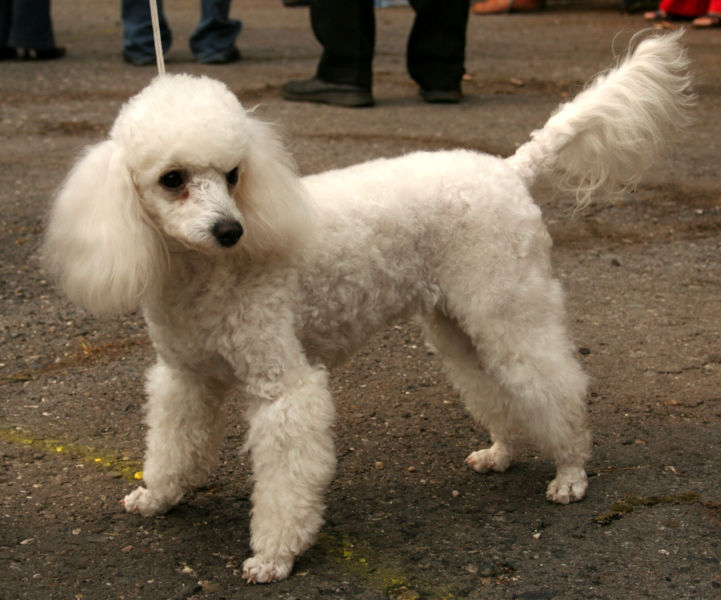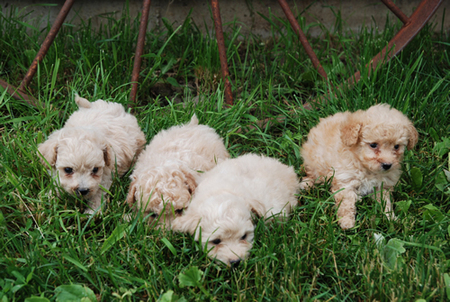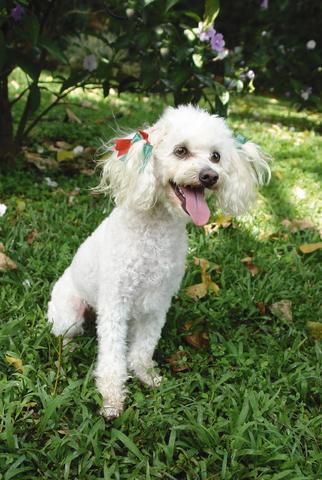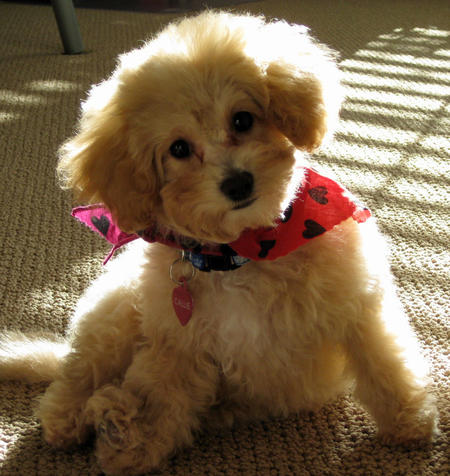| |
|
|
Toy Poodle Information

Toy Poodle Facts
| Size |
Small |
| Male Max Weight |
4-8 lb |
| Female Max Weight |
4-8 lb |
| Life Span |
12-14 years |
| Energy Level |
 |
| Ease of Training |
 |
| Grooming |
 |
| Shedding |

|
| Exercise Requirements |

|
| Playfulness |

|
| Affection Level |

|
| Good With Dogs |

|
| Good With Pets |

|
| Good With Strangers |

|
| Watchdog Ability |

|
| Protection Ability |

|
| Cold Tolerance |

|
| Heat Tolerance |

|
Toy Poodle Temperament
|
The Toy Poodle is a perky and somewhat high maintenance canine
to own. They bode friendly attitude that can easily get through their early training
years as a puppy. They have loads of energy and can be very active. They are sensitive
around other strangers and pets they can be rather friendly and open to engage. While
they make exceptional watchdogs, the Toy Poodle is not very well-versed at protecting
themselves, or their families, mostly due to their small size. Extremely affectionate and
able to reside with a very active family with ease, the Toy Poodle is a canine that is
full of spunk and a popular show dog as well.
|
Toy Poodle Upkeep
|
While the Toy Poodle is very popular for their unusual
appearance, they can be a lot to care for when their signature look requires so much
grooming. If you're Toy Poodle is a show dog, they often bode a defined curly tail and
shaved legs that many leave to a professional groomer to tend to. Being a friendly breed
of canines, they enjoy a lot of human engagement. They love to play with their families
and they will need mental stimulation as well. They are energetic, but only need a simple
walk to fulfill that craving each day. They have a very specific type of fur coat that
will need groomed at least once per week, and when they begin a shedding season they will
require additional care for their fur. Their fur tends to not shed as other dog's coats
do as the Toy Poodle's become tangled in the rest of their fur versus falling to the
floor. They should also not be in a residential setting that requires outdoor living all
the time as they are not a suitable dog for this type of
setting.
|
Toy Poodle Health Concerns
|
The Toy Poodle can develop a few health ailments such as PRA,
patellar luxation, epilepsy and Legg-Perthes disease. Some minor ailments can be
cataracts, trichiasis, entropion, lacrimal duct atresia and in rare occasions, they can
develop intervertebral disk degeneration as well. Screening recommended by the vet for a
Toy Poodle as they age can be for their eyesight, knees and hips. The average lifespan of
this type of breed is from twelve to fifteen years
long.
|
Toy Poodle History
|
The Toy Poodle originated from Germany and parts of Central
Europe in the 15th century. They are commonly referred to as a dog from France, but they
actually have been noted to have derived from somewhere in Asia by experts. The name
Poodle came from German word "pfudel" which is defined as a puddle or as the act of
splashing. They have been known to be exceptional water retrieving dogs and have been
utilized for their skills in the military and in the circus as well. They make wonderful
companions and have also been referred to as the Barbone and the Caniche. Very
affectionate and playful, they have become one of the most favored household
pets.
Many people thought the German Shepherd was related closely to the wolf since
it slightly resembles one. The truth is that its a more recently developed breed and is not
related closer to a wolf then any other breed of dog. It was at one time called the Alsatian
Wolfdog, but this caused many people to fear the dog, so the name was dropped.
German Shepherds excelled at being police dogs and in World War I they servered
as war sentries. It's proven capable as a police dog, guard dog, narcotics or explosive
detecting dog, search and rescue dog, war dog and shepherd.
|
Toy Poodle Pictures
|
Puppies

Middle
Aged

Older

|
Toy Poodle Videos
|
|
|








